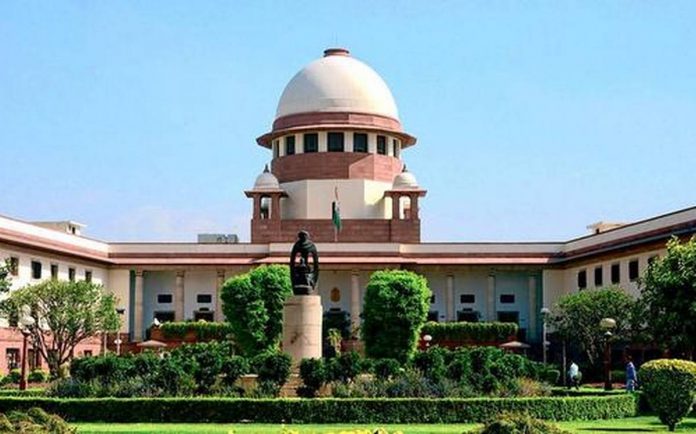New Delhi (ILNS): Hurling abuses at a person of the Scheduled caste/Scheduled tribe community within the four walls of a house does not amount to an offence under the Scheduled Castes and the Scheduled Tribes (Prevention of Atrocities) Act, 1989, “since it is not in the public view”, the Supreme Court has ruled in a recent judgment.
The bench of Justices L. Nageswara Rao, Hemant Gupta and Ajay Rastogi issued this ruling in an appeal filed by the accused against the order of the Uttarakhand High Court where the Court dismissed the application for quashing of the charge sheet and summons were issued against the accused.
The FIR was lodged for offences under Sections 452, 504, 506 and Section 3(1)(x) and 3(1)(e) of the Scheduled Castes and the Scheduled Tribes (Prevention of Atrocities) Act, 1989. The allegation was that the accused had entered the house of the victims illegally and had started hurling abuses on her and her labourers. The accused also allegedly issued death threats and made remarks/abuses in reference with the caste of the victims.
The bench observed that the “basic ingredients of the offence under Section 3(1)(r) of the Act can be classified as 1) intentionally insults or intimidates with intent to humiliate a member of a Scheduled Caste or a Scheduled Tribe and 2) in any place within public view.”
Stressing on the second ingredient the bench observed: “What is to be regarded as ‘place in public view’ had come up for consideration before this Court in the judgment reported as Swaran Singh & Ors. v. State through Standing Counsel & Ors. The Court had drawn distinction between the expression ‘public place’ and ‘in any place within public view.’ It was held that if an offence is committed outside the building e.g. in a lawn outside a house, and the lawn can be seen 5 (2008) 8 SCC 435 7 by someone from the road or lane outside the boundary wall, then the lawn would certainly be a place within the public view. On the contrary, if the remark is made inside a building, but some members of the public are there (not merely relatives or friends) then it would not be an offence since it is not in the public view.”
The bench also said: “As per the FIR, the allegations of abusing the informant were within the four walls of her building. It is not the case of the informant that there was any member of the public (not merely relatives or friends) at the time of the incident in the house. Therefore, the basic ingredient that the words were uttered ‘in any place within public view’ is not made out. In the list of witnesses appended to the charge-sheet, certain witnesses are named but it could not be said that those were the persons present within the four walls of the building. The offence is alleged to have taken place within the four walls of the building. Therefore, in view of the judgment of this Court in Swaran Singh, it cannot be said to be a place within public view as none was said to be present within the four walls of the building as per the FIR and/or charge-sheet.”
-India Legl Bureau


